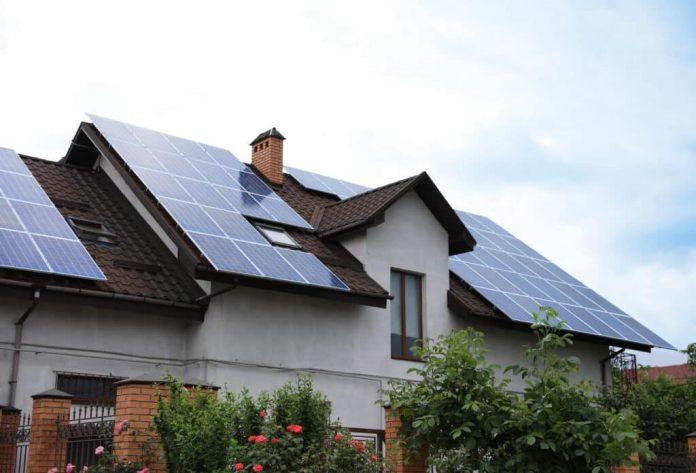Solar energy has become an increasingly popular and eco-friendly solution to meet our energy needs. One of the most common questions people have about solar panels is whether they work at night. In this article, we will explore the working principles of solar panels, their efficiency, and the truth behind their nighttime operation. Additionally, we’ll discuss the relevance of solar panels in Canberra and the benefits they offer.
How Solar Panels Work
Solar panels operate on the principle of the photovoltaic effect. When sunlight hits the solar cells in the panels, the energy from photons is absorbed by semiconductor materials like silicon. This process generates direct current (DC) electricity. The solar cells are connected in a specific arrangement to form solar modules, and these modules are then combined to create solar panels.
The photovoltaic effect is the foundation of solar energy production, and it allows us to harness the sun’s energy to power our homes and businesses. However, this process is not as simple as it seems, and solar panel efficiency plays a crucial role in determining their performance.
Understanding Solar Panel Efficiency
Solar panel efficiency refers to the ability of the panels to convert sunlight into usable electricity. The efficiency of solar panels is influenced by various factors, including the type of solar cells used, the amount of sunlight received, and the temperature.
To optimize solar panel efficiency, Maximum Power Point Tracking (MPPT) technology is used. MPPT enables solar panels to find the best operating point where they can generate the maximum amount of power. This technology helps improve the overall output of the solar panel system.
Do Solar Panels Work at Night?
Solar panels are designed to work during the daytime when sunlight is available. At night, there is no direct sunlight, which means solar panels alone cannot produce electricity. However, this doesn’t mean solar energy is completely unavailable during nighttime.
One solution to this issue is solar battery systems. These batteries store excess electricity generated during the day and supply it during the night when the panels are not active. This enables a continuous power supply even when the sun goes down.
Another way solar panels work at night is through grid connection. Many solar panel owners are connected to the grid, allowing them to draw power from the utility company at night when their solar panels are not generating electricity. During the day, they can feed excess power back into the grid, which can be advantageous in terms of net metering and cost savings.
Solar Panels in Canberra
Canberra, the capital city of Australia, is an excellent location for using solar panels. The region experiences abundant sunlight throughout the year, making it an ideal place to harness solar energy. Solar panels Canberra have gained popularity due to various benefits they offer.
One significant advantage of installing solar panels in Canberra is the potential cost savings on electricity bills. With the right solar panel system, homeowners and businesses can substantially reduce their reliance on the grid and cut down on electricity expenses.
Moreover, using solar panels in Canberra promotes a greener environment. Solar energy is renewable and sustainable, which means it reduces greenhouse gas emissions and lessens the overall carbon footprint. By opting for solar panels, residents of Canberra can actively contribute to the fight against climate change.
Advantages of Using Solar Panels
Using solar panels comes with numerous advantages that make it an attractive option for both individuals and businesses. Some of these advantages include:
- Renewable Energy Source: Solar energy is renewable, meaning it won’t deplete over time. As long as the sun exists, solar panels can continue to generate electricity.
- Cost Savings and Return on Investment: While the initial setup cost of solar panels may be significant, they provide long-term cost savings. Over time, the investment pays off through reduced electricity bills.
- Environmentally Friendly: Solar energy is clean and does not produce harmful emissions, contributing to cleaner air and a healthier environment.
Limitations and Challenges
While solar energy offers numerous benefits, there are also some limitations and challenges to consider:
- Dependence on Sunlight: Solar panels require sunlight to produce electricity. Cloudy days and nighttime affect their output.
- Initial Setup Cost: The upfront cost of installing solar panels can be a barrier for some people, although the long-term savings usually outweigh this initial investment.
- Storage and Disposal of Solar Panels: Solar panels have a lifespan, and their disposal can pose environmental challenges. However, advancements in recycling technologies are addressing this issue.
Conclusion
Solar panels are a remarkable technology that allows us to tap into the vast potential of solar energy. While they do not work at night without additional systems, their efficiency, coupled with battery storage and grid connections, ensures a continuous supply of clean electricity. In cities like Canberra, solar panels play a crucial role in promoting sustainability and reducing reliance on conventional energy sources.
FAQs
- Can solar panels generate electricity on cloudy days?
- Yes, solar panels can still generate electricity on cloudy days, albeit at a reduced output. They are designed to capture diffused sunlight as well.
- Are there government incentives for installing solar panels?
- Many countries and regions offer government incentives such as tax credits and rebates to encourage the adoption of solar panels.
- What maintenance do solar panels require?
- Solar panels generally require minimal maintenance. Regular cleaning and inspection are recommended to ensure optimal performance.
- How long do solar panels last?
- Most solar panels have a lifespan of 25-30 years or more, with some warranties extending up to 25 years.
- Can I install solar panels on my own?
- While DIY installation is possible, it is recommended to hire a professional to ensure a safe and efficient setup.
